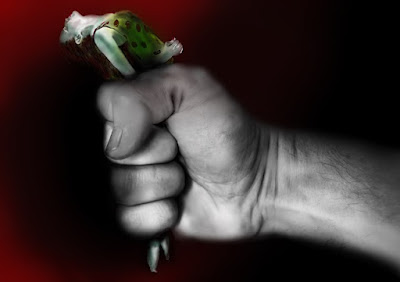The abusive relationship
An abusive relationship can sometimes be hard to identify. Learn the signs of a verbally, physically, or emotionally abusive relationship and why it can be difficult to leave.
Many relationships don't start off abusive but develop into abusive situations over time. This abuse can be verbal, emotional, or physical. Often there aren't physical signs to indicate that abuse is occurring.
It has been statistically proven that most abuse happens to women, although this doesn't mean that it never happens to men. An abusive relationship can also indirectly involve children, having an adverse impact on them from an early age.
The beginnings of abuse
Abuse can happen in any culture and touches all walks of life. It's not something that is new to our society, but we're becoming more aware of the constant problems that these relationships cause.
Image source: https://pixabay.com/
Many relationships don't start off abusive but develop into abusive situations over time. This abuse can be verbal, emotional, or physical. Often there aren't physical signs to indicate that abuse is occurring.
It has been statistically proven that most abuse happens to women, although this doesn't mean that it never happens to men. An abusive relationship can also indirectly involve children, having an adverse impact on them from an early age.
7 Common signs of an abusive relationship
Here are seven common characteristics of a partner in an abusive relationship:- They are manipulative.
- They are good at lying to themselves and others.
- They are possessive.
- They are controlling.
- They are jealous.
- They have low self-esteem.
- They have an inner fear of abandonment and are insecure.
Staying in an abusive relationship
Although each relationship is unique, there are some common reasons why individuals stay in an abusive relationship:- They hope that with time they can change their partner.
- They hope that they can get back to how it was in the beginning before the abusive relationship started.
- They feel that they can't live without the other person.
- They are afraid of confrontation.
- They have difficulty asserting themselves.
- They come from a childhood where the mother was abused.
- They don't feel that they have the skills to support themselves.
- They don't have the support to help them leave the abusive relationship and feel alone.
- They feel ashamed that they aren't able to fix the problem.

Post a Comment for "The abusive relationship"
Thank you for visiting the Ghufron xyz blog . Hopefully, we wrote an article useful to you. If this article useful, please share it with your friends, relatives, and family.